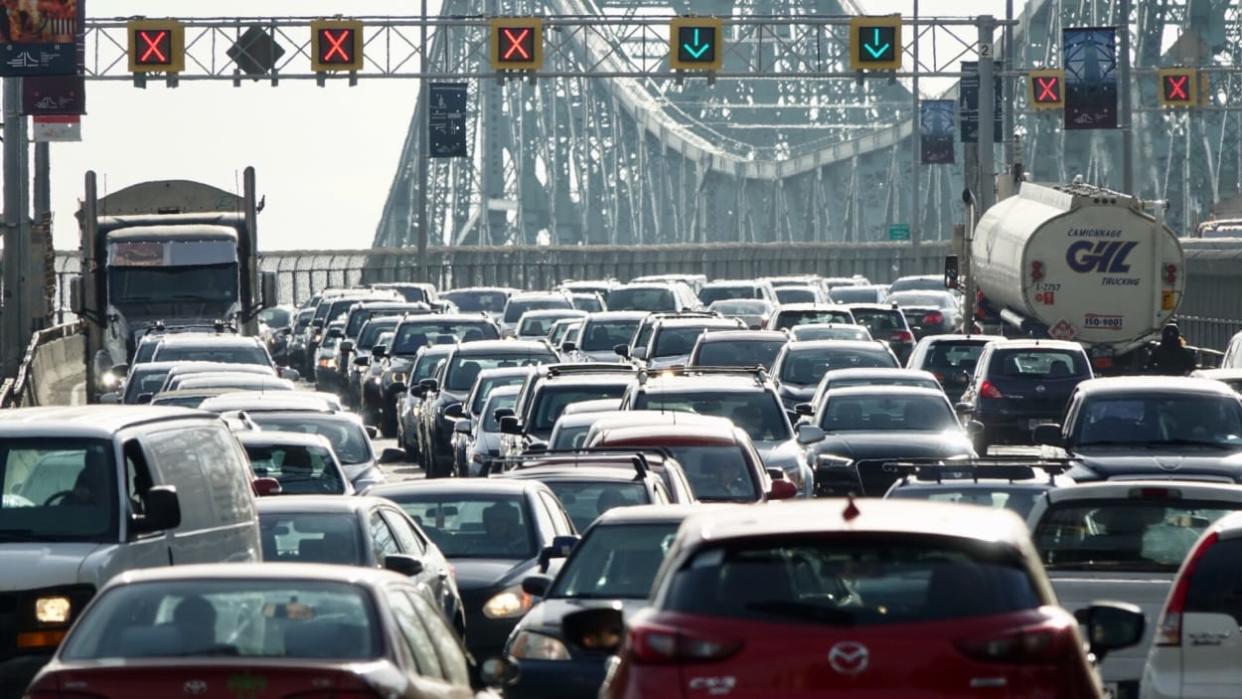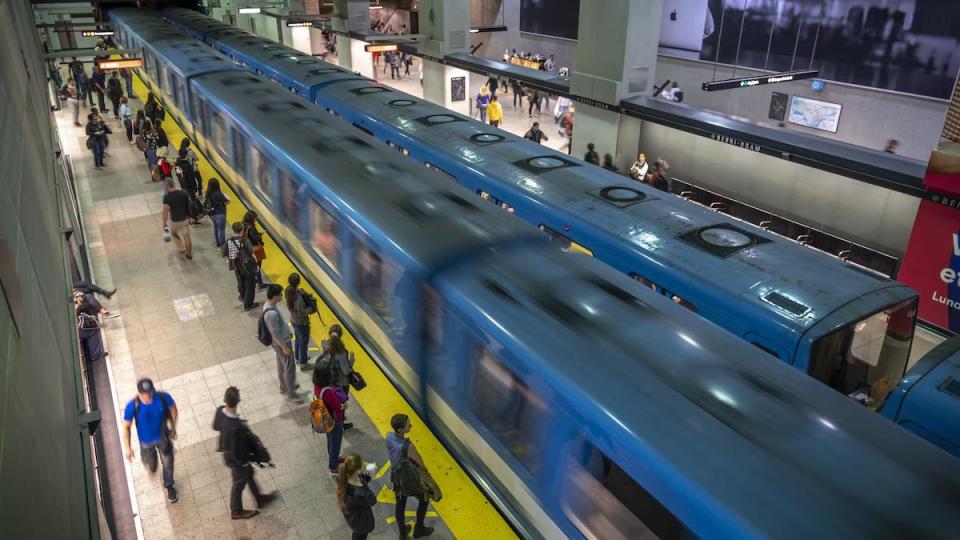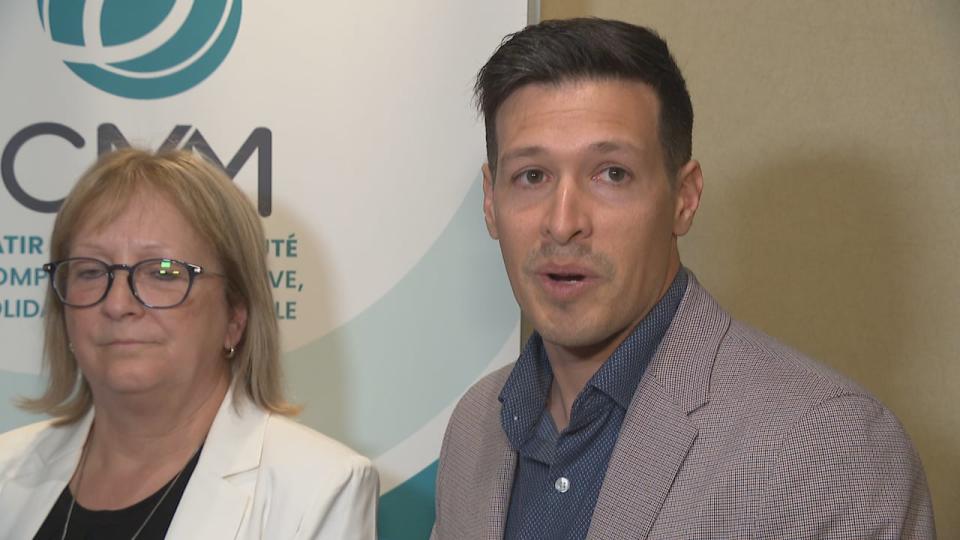Montreal-area drivers to see vehicle tax more than double next year to $150

Car owners in greater Montreal will soon see the tax they pay on car registration each year more than double after the Communauté métropolitaine de Montréal (CMM) — which represents more than 80 Montreal-area municipalities — voted Thursday to increase the tax from $59 to $150.
"I think that today we're faced with a choice which is very difficult, which no one wants to make, but which is necessary if we want to maintain public transport," Laval Mayor Stéphane Boyer told reporters after the vote Thursday.
Montreal-area municipalities have been battling with the provincial government over public transit funding for years.
They say transit agencies still haven't rebounded from a major drop in ridership during the pandemic. The municipalities say that — combined with inflation and a siphoning of revenue to the new Réseau express métropolitain (REM) light-rail network — has created a "perfect storm" of lost revenue for transit agencies.

Montreal area mayors are asking the province for $421 million to make up transit agency deficits. Transport minister Genevieve Guilbault has offered $200 million. (Simon-Marc Charron/Radio-Canada)
The municipalities asked the province for an extra $421 million to absorb the deficit for the region's public transit authority, the Autorité régionale de transport métropolitain (ARTM).
The province is only offering $200 million. Transport Minister Geneviève Guilbault has insisted transit agencies need to be more financially responsible and find ways to reduce expenses.
"We don't really have the choice to find new sources of financing, and our options are quite limited," Boyer said.
Tax increase could still be avoided
While the tax increase is set to take effect next year, the CMM has left itself some wiggle room. The municipalities say they'll consider dropping or reducing the tax hike if the province comes up with more money in the meantime.
But the CMM insists the increase isn't a bluff.

The mayor of Laval, Stéphane Boyer said the tax increase was a difficult but necessary choice. (Radio-Canada)
"It's not a strategy. We're not here to be in a political war," Boyer said.
"There are people who depend on public transportation to get to the hospital, to go to work every day," Boyer said.
Montreal Mayor Valérie Plante said it was a difficult choice to ask drivers to pay more.
"There's no one here that gets up in the morning saying, 'How do we ask taxpayers for more money?'" Plante said, insisting the province had backed the CMM into a corner.
"We're acting pragmatically. We need to think outside the box," Plante said.
Some municipalities call tax increase 'nonsense'
Not all municipalities supported the idea.
Some, mostly south and west of Montreal with few public transit options, felt it wasn't fair to make their drivers pay more.
"There are some municipalities that currently have no buses on their territory, so this is why we voted against," Mercier, Que., Mayor Lise Michaud said.
"We don't have any public transit and now we'll have a tax increase for the cars? For us it's nonsense," Vaudreuil-Dorion Mayor Guy Pilon said.
Boyer said municipalities that have little or no public transit service still benefit from a well-funded public system.
"It's a collective need and we must maintain it," Boyer said.
"If the hundreds of thousands of people who board the Metro every day all had a car, we would see hellish congestion," he said.
L'alliance TRANSIT, a coalition of environmental and public transit advocacy groups, supported the CMM's tax increase.
"The municipal community is doing its part. Minister Guilbault must now do hers," Samuel Pagé-Plouffe, co-ordinator of the group, said in statement Thursday.
Pagé-Plouffe called on Guilbault to come up with a five-year plan with municipalities that would offer stable public transit funding with increases.
Guilbault has said she intends to resolve the issue of transit agency deficits before the summer.

 Yahoo News
Yahoo News 
